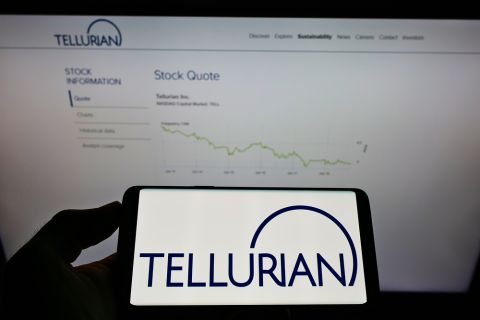Start with an industry that’s growing rapidly and benefiting from favorable taxation, then combine it with a government that desperately needs cash. It’s a recipe for tax reform.
The Joint Committee on Taxation, a nonpartisan committee of Congress, releases a study each year delineating U.S. tax expenditures. These are tax revenues foregone due to special provisions of the tax code. Each expenditure measures the difference between taxes currently owed and what would be owed were the expenditure eliminated and all other factors held constant. In contrast, a tax revenue estimate measures the amount of money the government would have made were the expenditure to be repealed, taking into account factors such as behavioral changes.
As can be seen in the accompanying chart, projected MLP tax expenditures decreased in the most recent study. This fluctuation is not unusual as a similar thing was reported in the January 2012 study.
More notably, though, is the remarkably low expenditure ($1.26 billion per year) given the size of industry ($570 billion as of June 30). In 2012, Apple paid $14 billion in U.S. income taxes, and ExxonMobil paid $31 billion. Obviously, income taxes are based on income, not size, but even if MLPs suddenly became subject to corporate tax, the industry would likely pay less than $2 billion. This is due, at least in part, to accelerated depreciation rules, which benefit MLPs that are continually building assets.
Why is all this so important? The federal debt is around $17.6 trillion, and the deficit (the amount added to the debt each year) is around $680 billion. If Congress were to tax MLPs, it would make very little impact on the national deficit, much less the debt.
To zero out the annual deficit by “giving up a latte,” meaning making a daily sacrifice to accomplish a savings goal, Congress has to find $2.7 billion in tax revenue—every working day. That’s more than two times the amount that taxing MLPs would contribute for an entire year.
So what is equivalent to taxing MLPs? It is comparable to giving up something that costs very little but has a significant impact on quality of life. In short, it’s just not a big enough deal to make a difference.
Maria Halmo and Emily Hsieh, CPA, are directors for Alerian, an independent provider of MLP and energy infrastructure market intelligence. Over $19 billion is directly tied to the Alerian Index Series. For more information, please visit www.alerian.com.

Recommended Reading
Exxon, Chevron Beat 3Q Estimates, Output Boosts Results
2024-11-01 - Oil giants Chevron and Exxon Mobil reported mixed results for the third quarter, with both companies surpassing Wall Street expectations despite facing different challenges.
Quantum Raises $10B for Oil, Gas, Midstream, Energy Transition
2024-10-29 - Quantum Capital Group raised $5.25 billion for its private equity flagship, Quantum Energy Partners VIII. A source told Hart Energy that most of the firm’s capital has gone into oil and gas because it offers the best risk-adjusted returns.
Souki’s Saga: How Tellurian Escaped Ruin with ‘The Pause,’ $1.2B Exit
2024-09-11 - President Biden’s LNG pause in January suddenly made Tellurian Inc.’s LNG export permit more valuable. The company’s July sale marked the end of an eight-year saga—particularly the last 16 months, starting with when its co-founder lost his stock, ranch and yacht in a foreclosure.
Mexico Pacific Working with Financial Advisers to Secure Saguaro LNG I FID
2024-10-23 - Mexico Pacific is working with MUFG, Santander and JP Morgan to arrange the financing needed to support FID and the anchor phase of Saguaro Energía LNG.
Private Producers Find Dry Powder to Reload
2024-09-04 - An E&P consolidation trend took out many of the biggest private producers inside of two years, but banks, private equity and other lenders are ready to fund a new crop of self-starters in oil and gas.
Comments
Add new comment
This conversation is moderated according to Hart Energy community rules. Please read the rules before joining the discussion. If you’re experiencing any technical problems, please contact our customer care team.




